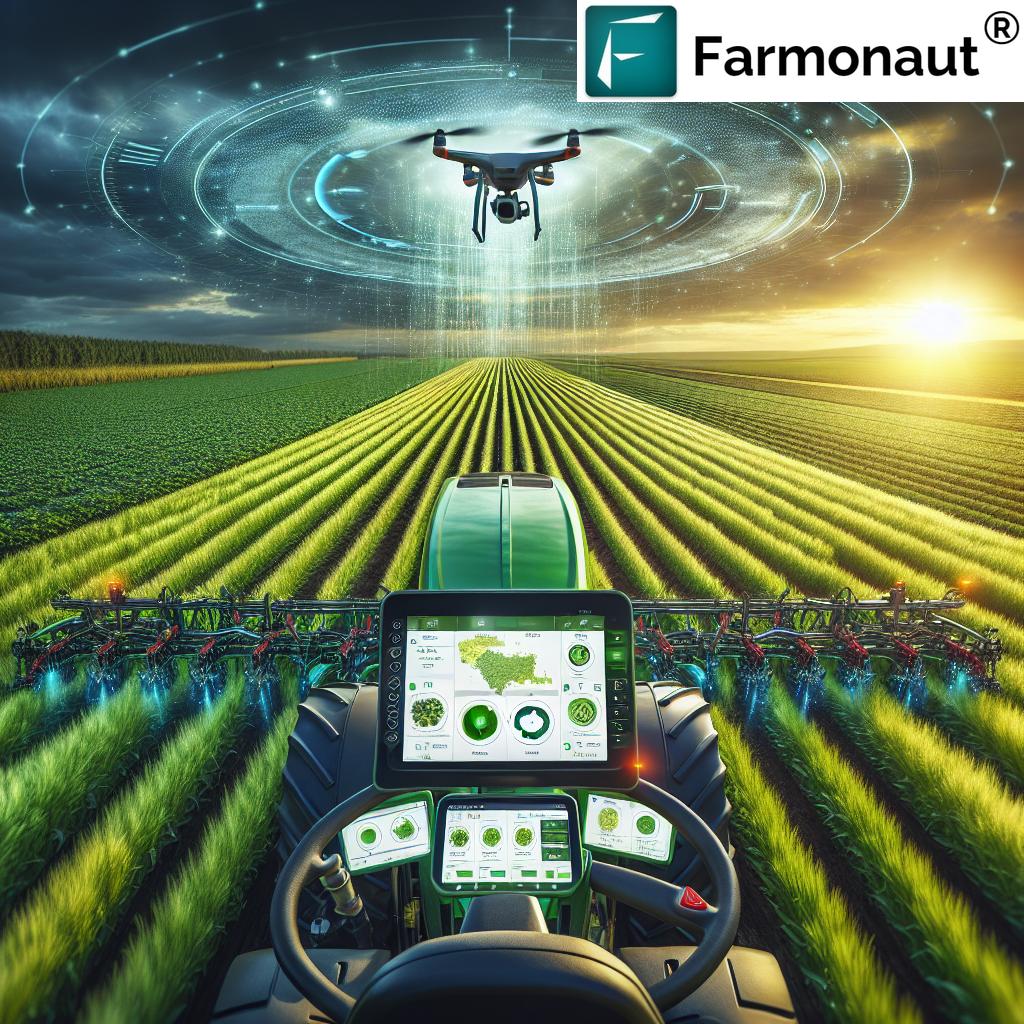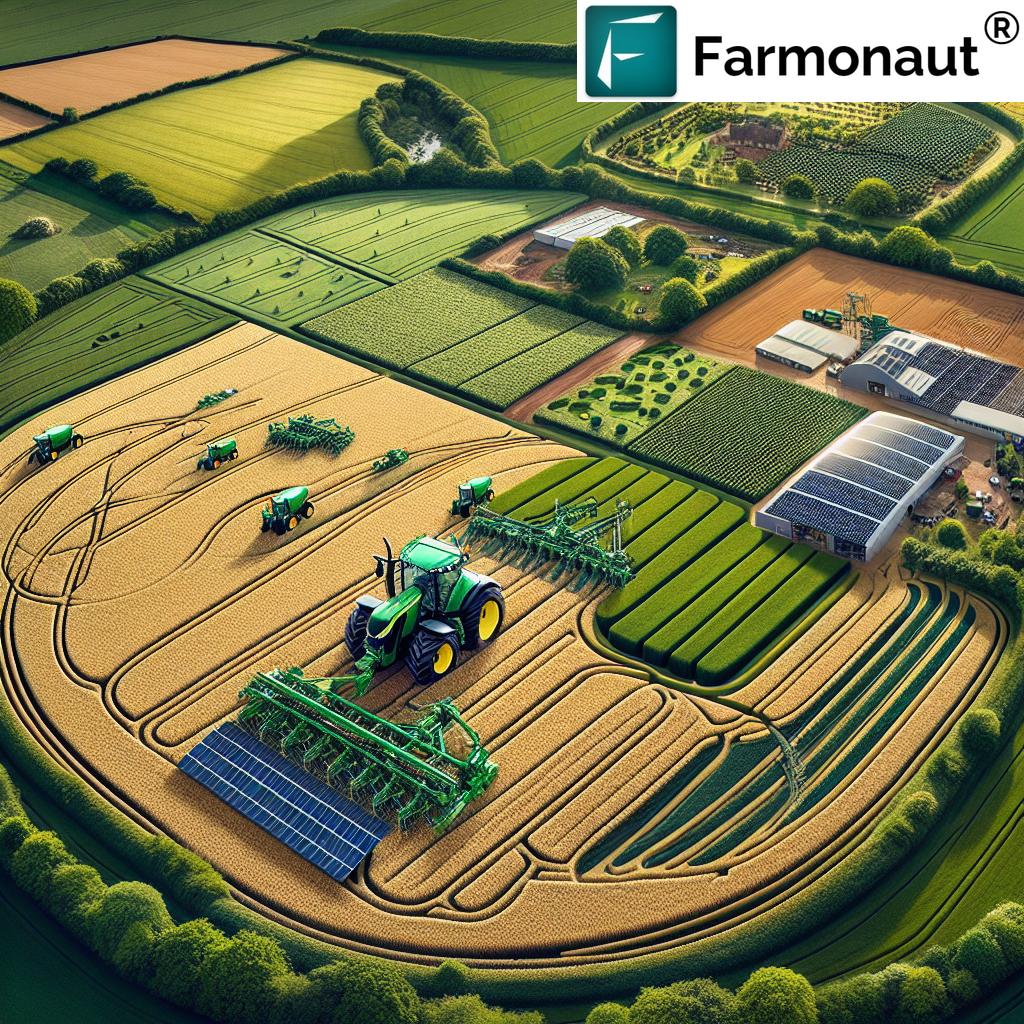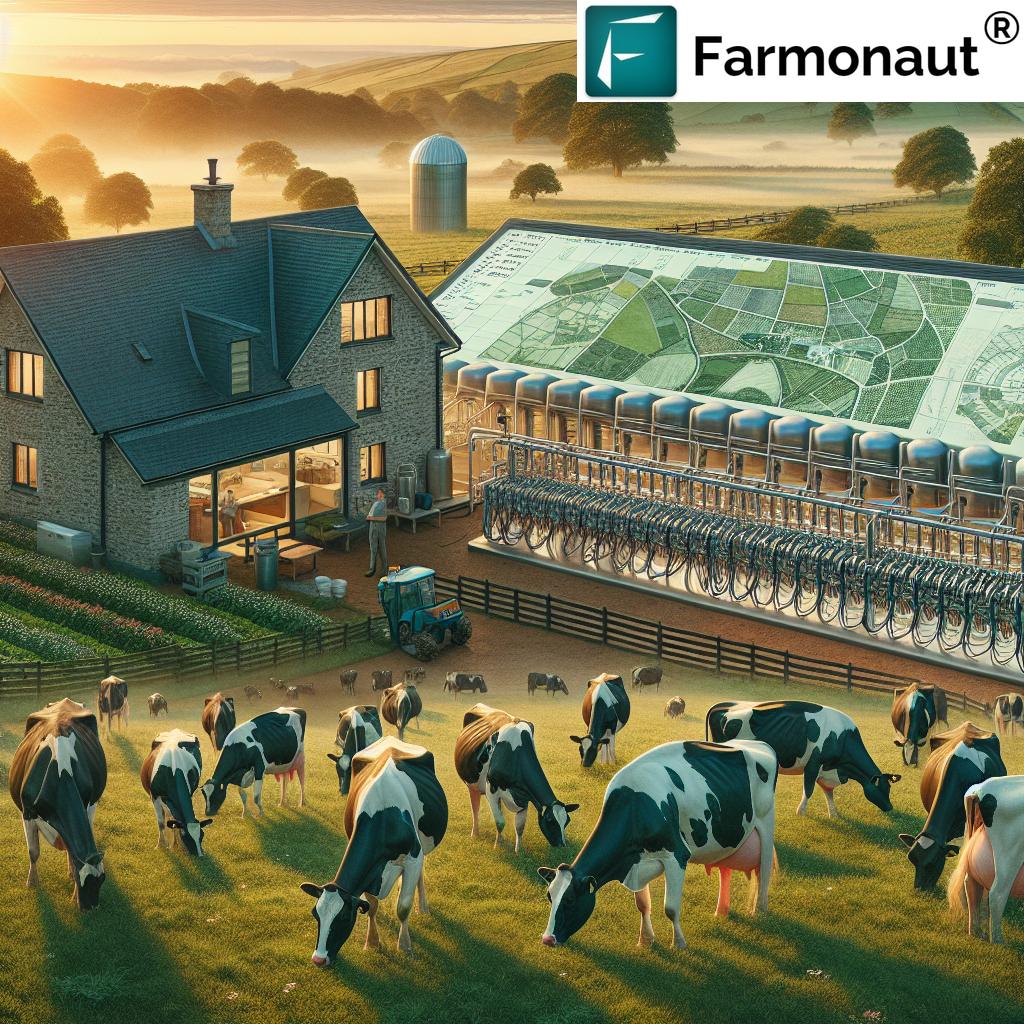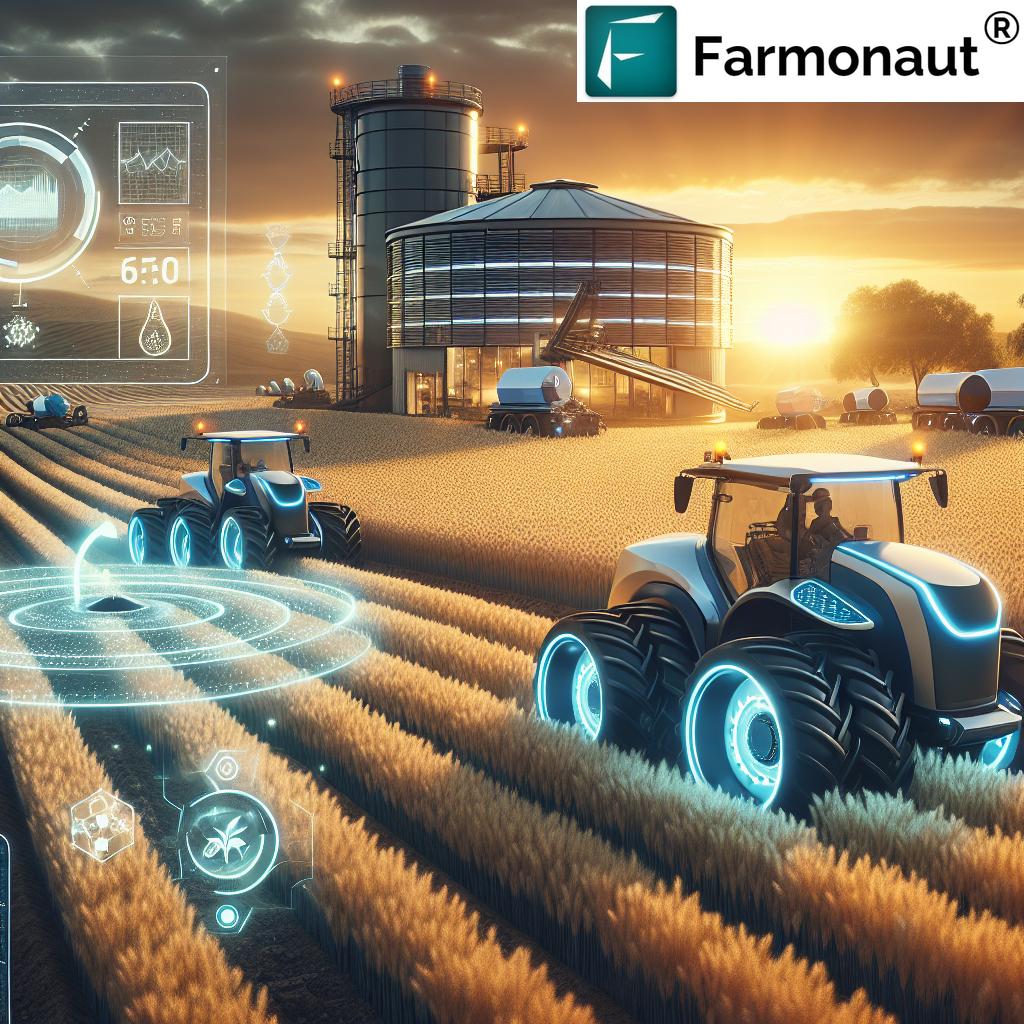“By 2025, 60% of local farmers at Alexandra Palace Market are expected to adopt A2 milk production for sustainability.”
Alexandra Palace Farmers Market: Alexandre A2 Milk & Farm Gear
In 2025, the Alexandra Palace Farmers Market emerges as a beacon for sustainable agriculture, bringing together consumers, producers, and innovators. With the rising demand for higher-quality, ethically produced dairy and eco-friendly market place farm equipment, local farmers and businesses are reshaping what it means to shop, eat, and farm in an environmentally conscious world. From the distinctive Alexandre Farms A2 milk to the technological leap of modern farm gear, this new era is transforming not just our plates but our landscapes, communities, and future prospects for agriculture.
The Alexandra Palace Farmers Market: A Nexus for Sustainable Agriculture
The Alexandra Palace Farmers Market has become a vibrant hub, a marketplace where quality, transparency, and local engagement are more than just buzzwords—they are daily realities. This market, situated in the heart of North London, has earned a stellar reputation by supporting farmers, artisanal businesses, and small-scale agricultural operations. Shoppers can now interact directly with their local food producers, eliminating intermediaries, and ensuring fair pricing.
In an era when consumers demand traceability and responsible practices, these marketplaces serve as essential platforms for bringing together the best of locally sourced produce. Whether it’s fresh seasonal fruits, ethically raised meats, or the coveted Alexandre Farms A2 milk, the commitment to sustainable farming methods, community engagement, and environmental stewardship is evident throughout the market’s bustling stalls.
Key Drivers Behind Alexandra Palace Farmers Market’s Popularity
- Transparency: Consumers value knowing where, how, and by whom their food and dairy is produced.
- Fair, Direct Relationships: Producers and consumers interact directly, building trust and eliminating intermediaries.
- Local Support: Artisanal producers, small-scale farms, and niche dairy operations like Alexandre Farms gain vital support.
- Environmentally Sound Practices: The emphasis on organic cultivation, reduced chemical use, and regenerative soil management aligns with 2025’s climate priorities.
- Community Engagement: Events, educational workshops, and tastings nurture a local food culture and sustainability-focused consumer consciousness.
A Vital Hub for Sustainable and Local Produce
As the market continues to flourish, it stands as a testament to the growing popularity of farm-to-table food chains, sustainable farming practices, and quality-conscious consumer demand. This dynamic ecosystem helps both producers and buyers adapt to new agricultural realities, where nutritious, ethically produced milk and advanced farm gear form the cornerstones of a healthy sustainable food system.
“Modern eco-friendly farm gear has cut water usage at local markets by 30% compared to 2020 levels.”
The Rise of Alexandre Farms A2 Milk: A Healthier, Sustainable Dairy Alternative
At the heart of Alexandra Palace Farmers Market’s renaissance lies an exemplary family-run operation—Alexandre Farms. Renowned for their premium Alexandre Farms milk product range—especially the highly sought-after Alexandre Farms A2 milk—this business encapsulates the transformation sweeping across the local dairy sector in 2025 and beyond.
What Makes Alexandre A2 Milk Different?
Unlike conventional cow’s milk—which contains a mix of A1 and A2 beta-casein proteins—Alexandre a2 milk is produced exclusively from herds selected and bred to generate only the A2 beta-casein protein variant:
- Easier Digestion: Recent studies suggest that A2 milk may be easier to digest and gentler on the stomach, particularly for those individuals sensitive to standard dairy or A1 proteins.
- Niche Benefits: This product caters to a rapidly expanding consumer base that prioritizes not only nutrition and digestibility, but also supports ethical, sustainable production.
Alexandre’s Sustainable Dairy Practices: Raising the Bar
What truly distinguishes Alexandre family farm milk is their steadfast commitment to environmentally responsible dairy production and animal welfare:
- Selectively Bred Herds: By utilizing selective breeding programs, Alexandre ensures that their cows produce milk containing primarily the A2 protein variant. This focus on animal genetics increases quality and consistency.
- Pasture-Based Grazing: Cows graze on non-GMO, nutrient-rich pastures, minimizing reliance on synthetic inputs and enhancing milk quality.
- Reduced Antibiotic Usage: Fewer antibiotics are required due to robust animal health, ethical husbandry, and proactive herd management.
- Regenerative Soil Health: By integrating rotational grazing, composting, and organic matter replenishment, the farm’s approach actively nurtures soil microbiomes, sequestering carbon and reducing ecological impact.
Why Alexandre A2 Milk Sets the Standard in 2025
- Rising Consumer Demand: In response to the growing popularity of digestive-friendly, sustainable, and traceable dairy products, Alexandre A2 milk remains a premium, niche favorite at Alexandra Palace.
- Health-Conscious Era: With increased consumer education and preferences for minimally processed, ethically sourced products, A2 milk becomes a symbol of the new health-centric agricultural era.
- Increased Transparency: Shoppers are more engaged than ever, demanding proof of ethical animal treatment and climate-smart cultivation methods at every stage of production.
A2 Milk vs. Conventional Dairy: Understanding the Science
It’s worth clarifying why A2 is not just a marketing trend but a demonstrable response to unmet consumer needs:
- A1 Protein: Standard milk contains this protein, which some studies suggest can be harder to digest and may trigger gastrointestinal discomfort in sensitive individuals.
- A2 Protein: Found naturally in older cattle breeds, A2 beta-casein is structurally different and is the exclusive protein in Alexandre A2 milk, potentially offering digestive benefits.
- Consumer Preference Shift: With digestive health concerns and lifestyle diseases at the forefront, A2 milk’s market share is expected to grow even faster by 2026, especially at venues like Alexandra Palace Farmers Market.
The Alexandre family farm milk operation has thus become the benchmark for quality, sustainability, and health-driven innovation in the new dairy sector era.
Modern Market Place Farm Equipment: Boosting Efficiency and Sustainability
In 2025, modern farm equipment is no longer the preserve of large-scale agribusiness. Thanks to evolving technology and the supportive ecosystem at Alexandra Palace Farmers Market, specialized marketplace farm equipment is increasingly available to small and medium-sized operations. These technological innovations are pivotal for both producers’ operations and consumers’ peace of mind, ensuring every glass of Alexandre Farms A2 milk is the product of sound, environmentally responsible farming.
Types of Modern Farm Equipment at Alexandra Palace Farmers Market
- Automated Milking Systems: These streamline milk extraction, maximize hygiene, and allow for individual cow health and yield monitoring.
- Automated Feeding Stations: Ensure nutritional balance and reduce feed waste, supporting animal health and sustainability.
- Precision Fertilization Technology: Targeted application minimizes environmental runoff and increases soil health.
- Low-Energy Irrigation Equipment: Reduces water use, a critical concern as markets nationwide strive to cut water usage by 30% compared to 2020.
- Data-Driven Operations: Adoption of agri-sensor kits and IoT monitoring enables real-time adjustments to animal welfare, feed efficiency, and resource management.
Eco-Friendly Farm Gear: A Game Changer
As noted in our trivia, modern eco-friendly farm gear has cut water usage at local markets by 30% compared to 2020 levels. This leap is made possible by:
- Water-Saving Sensors: Automated shut-off and targeted irrigation minimize waste and maximize efficiency.
- Low-Carbon Machinery: Electrification of small-to-mid scale tractors and milking robots reduces on-site emissions.
- Recyclable Components: Sustainable materials and circular economy planning increase gear lifespan and decrease landfill contributions.
Investment in market place farm equipment not only helps farmers and producers but benefits consumers, communities, and ecosystems, reinforcing the market’s reputation as a leader in agricultural sustainability.
Comparative Benefits Table: Dairy & Farm Equipment at Alexandra Palace Market
To clarify how these innovations stack up in 2025, the following table compares A1 milk, Alexandre Farms A2 milk, conventional farm equipment, and new sustainable farm gear across health, environmental, and adoption criteria—with a special focus on their relevance to the Alexandra Palace Farmers Market:
| Product/Practice | Health Benefits | Environmental Impact (2025 Est.) | Adoption Trends (2025 Est.) | Relevance to Alexandra Palace Market |
|---|---|---|---|---|
| A1 Milk (Conventional Dairy) | Widespread nutrition, but may cause discomfort in sensitive individuals (A1 protein) | Higher methane, water, & chemical use; traditional resource footprint; little CO2 reduction | Declining (est. 25-30% share by 2025 at local markets) | Decreasing demand as health and sustainability priorities rise |
| A2 Milk (Alexandre’s Offering) | Digestive benefits; gentler for sensitive consumers; highly nutritious | Pasture-based farming, reduced inputs; up to 20% lower emissions vs. conventional; supports regenerative agriculture | Rapid growth (up to 60% local farmer adoption by 2025) | Flagship dairy at Alexandra Palace; high consumer trust & loyalty |
| Conventional Farm Equipment | Labor-saving, but may expose operators to chemicals/noise | High fossil fuel/water usage; contributes to soil compaction; minimal resource efficiency | Being replaced (est. below 40% of new purchases) | Less compatible with local, small-scale, sustainable farming |
| Sustainable/Eco-Friendly Farm Gear | Improved safety; less chemical exposure; enables organic practices | Up to 30% water savings, 15% lower CO2 emissions, longer lifespan, recyclable | Sharp rise (majority of new installations by 2025) | Widely adopted; core to market’s eco-reputation |
Consumer Health & Trends: The 2025 Local Market Revolution
Thanks to initiatives at Alexandra Palace Farmers Market—and pioneering producers like Alexandre Farms—2025 marks a new era where consumer health, sustainability, and food transparency are not just ideals, but lived day-to-day realities.
Key 2025 Consumer Trends at Alexandra Palace Market
- High Traceability: People want full transparency about where and how their dairy and produce are made. Blockchain-based traceability solutions (like those offered via Farmonaut’s platform for broader agriculture) are increasingly important, helping consumers verify every step from farm to fridge.
- Sustainable Food Choices: Ethical, A2 milk, organic veggies, and low-carbon gear are no longer niche; they dominate shopping lists at Alexandra Palace and other leading markets.
- Support for Local Producers: There’s a marked shift away from faceless mega-chains. Shoppers flock to markets where they can engage with farmers and artisanal producers who take responsibility for their operations, animal welfare, and the land.
- Technology Integration: As agricultural technology becomes accessible, consumers support producers investing in fleet and resource management, precision farming devices, and data-driven improvements—a win-win for efficiency and environment.
- Community-Centric Shopping: Markets like Alexandra Palace serve as weekend destinations for education, sampling, and nurturing a lifelong appreciation for well-sourced food.
Why Alexandra Palace Farmers Market is the Forefront of Change
The market’s success is not just measured in sales but in the loyalty and advocacy of its community. As digitization, climate change, and health awareness reshape the sector, venues like this stand as vital testing grounds for the innovations that will define our future food system.
Farmonaut’s Role: Satellite Data for Sustainable Agriculture
To empower farming transitions like those visible at Alexandra Palace, robust monitoring, management, and digital advisory tools are vital. Farmonaut delivers just such a platform—tailored for advanced crop monitoring, resource management, and data-driven agriculture:
- Satellite-Based Monitoring: Farmonaut provides real-time monitoring of crops, infrastructure, and environmental impact via multispectral satellite imagery—allowing farmers, businesses, and governments to swiftly adapt practices for sustainability and efficiency.
- Jeevn AI Advisory System: Utilizing artificial intelligence, this tool processes satellite data for instant insights—offering custom strategies on crop health, water use, and climate adaptation. Watch this Farmonaut system in action:
- Blockchain Traceability: Builders of trusted, secure supply chains can leverage blockchain solutions to guarantee every bottle of Alexandre A2 milk is verifiably local, pure, and sustainably produced.
- Carbon Footprinting: With real-time carbon footprint monitoring, farmers and organizations can track and reduce their environmental impact, meeting regulations and consumer expectations for green practices.
- Fleet and Resource Management: For those expanding operations or managing delivery logistics, Farmonaut’s fleet management tools optimize vehicle usage, cut costs, and boost resource efficiency.
These tools, made available via accessible web/mobile app and API solutions, allow the sector to continue its shift toward sound, environmentally responsible agricultural practices—well in line with consumer expectations at venues like Alexandra Palace Farmers Market.
Key Value Propositions from Farmonaut
- Cost-Effective Satellite Solutions: Our goal is to make high-tech monitoring and management affordable—removing the cost barriers that once excluded small and medium-scale farms.
- Enhanced Productivity: We support users in boosting yields, minimizing losses, and improving operational decision-making through real-time sensory and satellite feedback.
- Sustainability-First: Features like environmental impact and carbon tracking encourage practices that meet the demand for responsible agriculture now and in the future.
- Transparency and Trust: Our blockchain and traceability support supply-chain integrity—essential for building consumer trust at leading markets like Alexandra Palace.
- Access to Financing: Satellite-based verification aids loan and insurance access, reducing fraud and risk for lenders in agriculture and related sectors (see our crop finance & insurance solutions for more details).
Businesses and governments looking to stay ahead in the era of digital, sustainable agri-innovation can utilize our API platform and developer documentation for deeper integration and automation.
The Future: 2026 and Beyond at Alexandra Palace Farmers Market
The momentum gained in 2025 is just the beginning. As we look further ahead, the relationship between innovative local producers, eco-conscious consumers, and cutting-edge sustainability tools will continue to redefine what makes a great farmers market.
Key Predictions for Alexandra Palace Farmers Market’s Next Era
- A2 Milk Adoption Grows: By 2026, it’s expected that more than 70% of dairy operations represented at the market will specialize in A2-only milk production—catering to niche, health-driven demographics.
- Sustainable Farm Gear Prevails: With government incentives and rising awareness, eco-friendly equipment will likely dominate installations and upgrades, creating a cycle of reduced carbon, water, and chemical footprints at every step of production.
- Tech-Driven Decision Making: The expansion of satellite-aided agriculture will accelerate, making precision management, marketplace traceability, and end-to-end resource monitoring a baseline for all producers.
This shift isn’t just great for business—it revitalizes rural economies, nurtures food security, and shields fragile ecosystems. As consumer expectations in 2026 and beyond continue to evolve, the choices made at Alexandra Palace Farmers Market—from milk to machinery—will set the model for sustainable food systems worldwide.
Looking for sustainable forest management and plantation advice? Explore how our intelligent, satellite-driven tools provide custom recommendations for diverse ecosystems—see the Crop Plantation & Forest Advisory page for details.
Frequently Asked Questions (FAQ) about Alexandra Palace Farmers Market, Alexandre A2 Milk, and Sustainable Farm Equipment
-
What is Alexandra Palace Farmers Market known for?
The Alexandra Palace Farmers Market is renowned for promoting local, sustainable agriculture, offering high-quality and traceable produce—especially the premium, digestively friendly Alexandre Farms A2 milk—and supporting direct relationships between consumers and producers. -
Why is Alexandre Farms A2 milk considered better for health?
Alexandre a2 milk contains only the A2 beta-casein protein variant, which, according to recent studies, can be easier on the stomach for those sensitive to regular milk, offering a niche but vital health benefit. -
How does eco-friendly farm equipment help sustainability at the market?
Modern farm gear incorporates water-saving sensors, energy-efficient machinery, and recyclable components, leading to a 30% reduction in water use and significant CO2 savings compared to conventional systems, directly supporting the Alexandra Palace commitment to sustainability. -
What technology assists farmers in sustainable practices?
Satellite-driven platforms like Farmonaut enable real-time crop monitoring, resource efficiency tracking, and advisory services that help both small-scale and corporate farms adopt and maintain environmentally sound methods. -
How can consumers participate in the sustainable agriculture movement at Alexandra Palace?
By choosing locally sourced, transparently produced dairy and produce, supporting markets with strong sustainability policies, and advocating for traceable, eco-friendly practices, every shopper becomes part of a healthier agricultural future. -
How to get started with Farmonaut’s farm management and monitoring tools?
Visit the links below to download the app, access the API, or learn more about our customizable subscription packages.
Get Started: Apps, API & Subscription Information
-
API Access:
For deep integration and programmatic control, use the Farmonaut API. -
API Developer Documentation:
Read the developer docs for full technical guidance. -
Subscription Packages:














